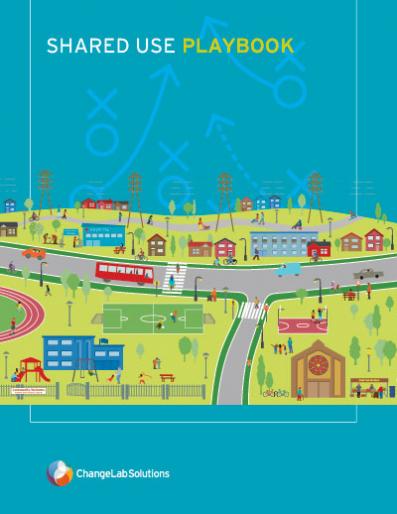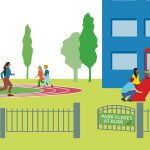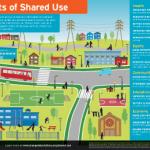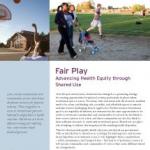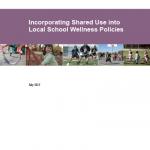Shared Use Playbook
Opening up recreation facilities to promote community & health
Opportunities for recreation and physical activity are essential for personal and community health. Yet many communities across the country do not have enough safe, affordable, high-quality spaces for play, exercise, and recreation.
Shared use agreements—also known as joint use agreements, memoranda of understanding, and contracts—allow public and private property owners to broaden access to their underutilized facilities for community use. Shared use agreements can be used in a wide range of settings. They can involve a variety of partners and achieve goals that are unique to a particular community or locale. As a widely promoted strategy to create opportunities for physical activity, shared use is particularly useful for cities and towns that want more park spaces. Shared use agreements are not a substitute for adequate public infrastructure investments, but they can be an important component of larger initiatives to promote healthy living and advance health equity.
ChangeLab Solutions developed the Shared Use Playbook for public health advocates, community leaders, and local government officials who want to learn more about implementing shared use agreements. This new playbook compiles many of our tools and resources for formalizing shared use agreements into one comprehensive guide. In addition to highlighting real-world examples, the playbook discusses the benefits that shared use can have for a community’s health:
- Regular physical activity is crucial for the prevention and control of chronic disease.
- Access to nutritious food through shared use community gardens and farmers markets helps address obesity, hunger, and poor nutrition.
- Shared use agreements maximize the impact of existing facilities; they are an efficient and economical use of resources.
